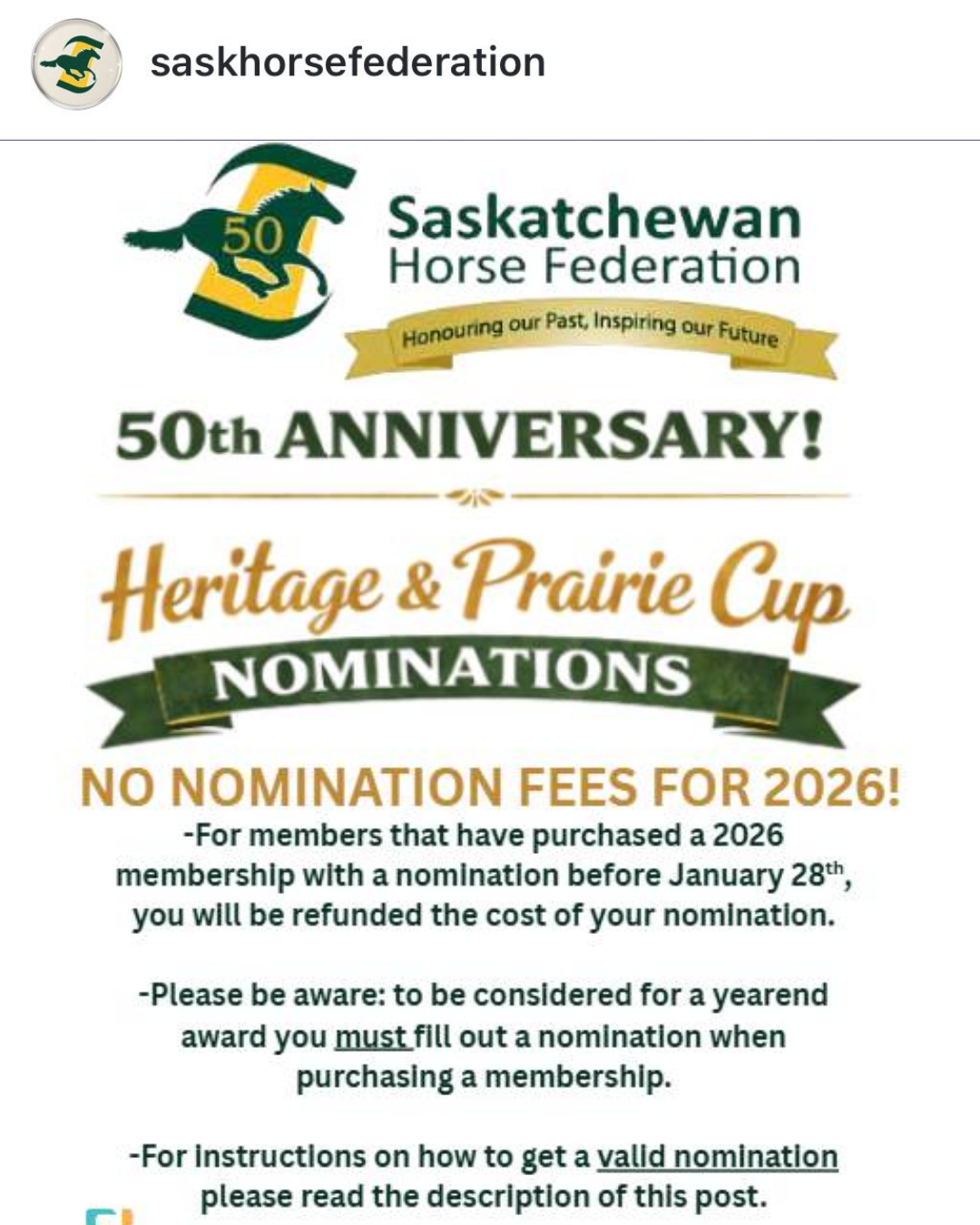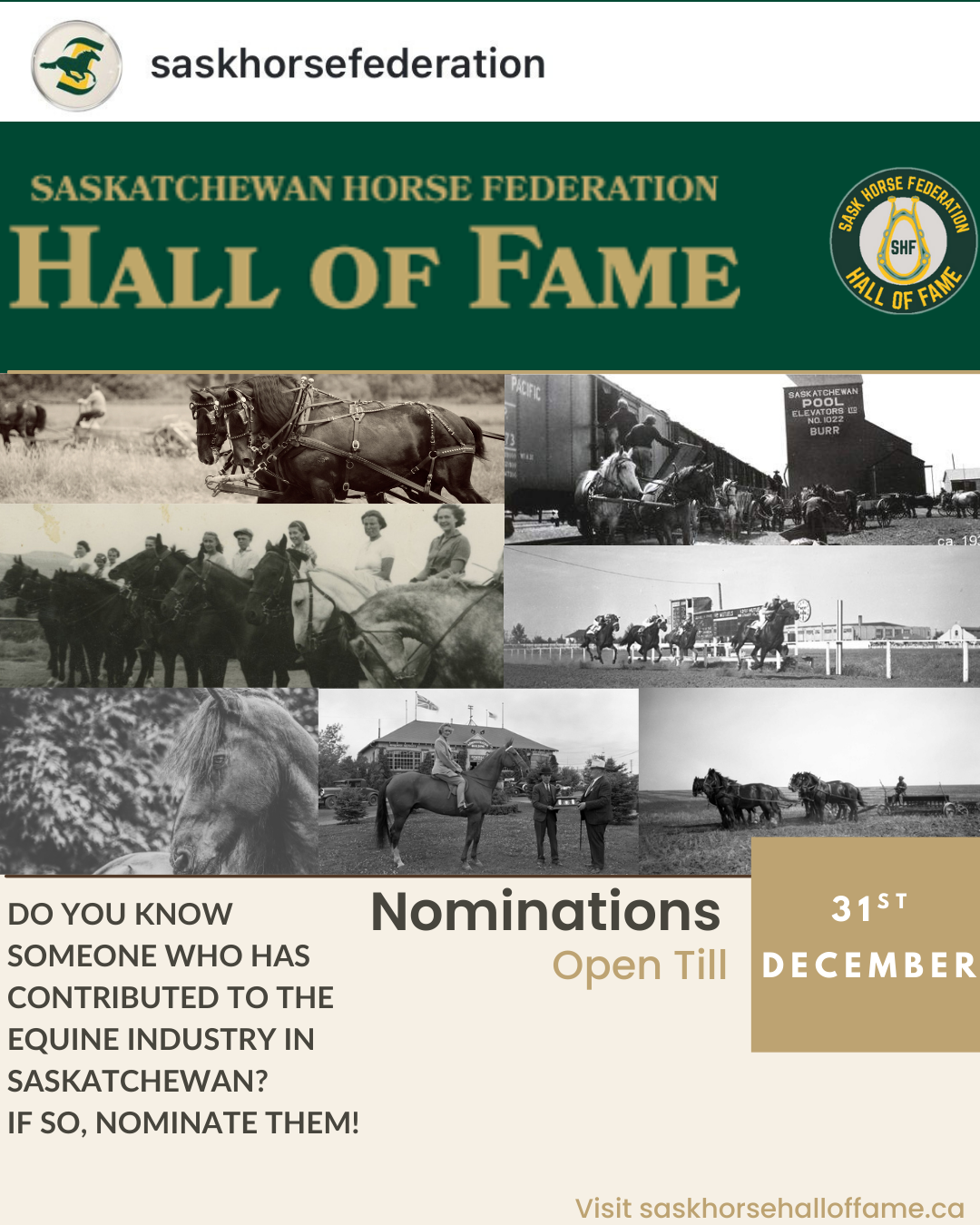Spring is bound to arrive, and with the summer months comes travel to the events we look forward to all year. Horse shows, rodeos, trail rides, clinics and other equine adventures often require travel – but are you prepared? Annual professional maintenance for both truck and trailer are the first place to start, but there are other things you should be thinking about
Are your vehicles ready?
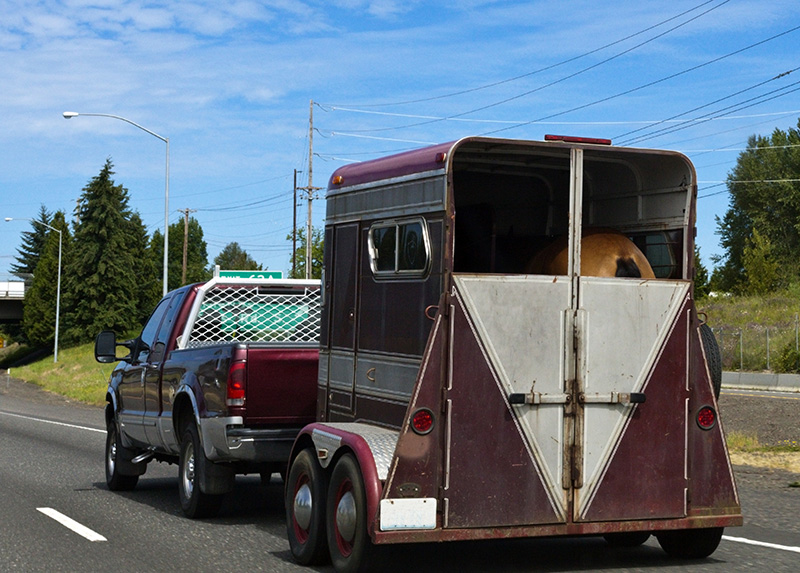 Are your vehicles properly licensed for pulling trailers? Do you have the proper Driver’s License? SGI requires a Class 1 or a Heavy Trailer G endorsement on your license to pull more than 4600kg. If you are pulling a four horse gooseneck with four light horses, you may be over the limit. Check https://www.sgi.sk.ca/towingguidelines to ensure you are meeting the requirements.
Are your vehicles properly licensed for pulling trailers? Do you have the proper Driver’s License? SGI requires a Class 1 or a Heavy Trailer G endorsement on your license to pull more than 4600kg. If you are pulling a four horse gooseneck with four light horses, you may be over the limit. Check https://www.sgi.sk.ca/towingguidelines to ensure you are meeting the requirements.
People are also often surprised to discover that the vehicle they use to tow is not rated for the weight of both their trailer and horses. Rating information can be found in your vehicle’s manual. Remember that when pulling horses, a load that shifts and moves, it is advisable to be well under your vehicle’s limit.
What about your trailer – how did it fare over the winter?
- Is there new rust? Broken windows or new leaks?
- How are your floorboards? Are drainage holes unblocked?
- Are all hinges, springs, and latches working?
- Have you lubricated your trailer hitch and checked for signs of wear (cracks, loose bolts)?
- Is your jack in good repair? If it is not used from time to time, it may have seized.
- Have you checked the tire pressure and wheel bearings on both truck and trailer?
Have you thought about other equine travel safety practices?
At the recent SHF AGM, Dr. Jennifer Woods gave an excellent presentation on horse safety. She stated that if you are broken down on the side of the road, you should leave your horses in the trailer, if at all possible. She said that many horses once out of the trailer in unfamiliar surroundings manage to break free and run into traffic.
Dr. Woods also highlighted the importance of proper identification for your horses. In recent fire and flood evacuations in Western Canada, horses were often evacuated without the owner being present. When owners arrived, they had no way to prove ownership. Take a picture of your horses if they are not branded, without tack, identifying distinguishing marks such as scars, white hairs or anything else that makes your horse stand out.
Other issues to consider:
- Pack a horse first aid kit as well as a human first aid kit.
- Ensure that you have road markers to set out on the road in case you are broken down – to warn others to slow down.
- Have the proper transport papers for your horses if you are traveling interprovincially or to the US.
- Practice caution at busy events, although we tend to be trusting, it is not unheard of for horses to be led away and stolen in busy environments.
- Be sure to research and enforce biosecurity measures to keep both the horses at the event and those at home safe – starting with limiting contact with other horses and bringing your own water and feed pails.
- Come prepared with trail maps when you are going on long rides.
- Have required paperwork prepared and handy when you arrive at your destination.
Do you have insurance?
You are automatically covered by your SHF membership for Transportation Insurance for Non-Owned Horses, which protects against a lawsuit for the death of someone’s horse while you are transporting that horse up to a maximum amount. Additional insurance through SHF is also available for other travel concerns. Be sure to review your policies and determine whether additional insurance is required given your unique circumstances.
We have made it through another long Saskatchewan winter. With a little forethought and preparation, we will all be ready to enjoy a safe and fun summer of horse adventures!
Article by Norm Kohle, Chairman of SHF Recreation Board

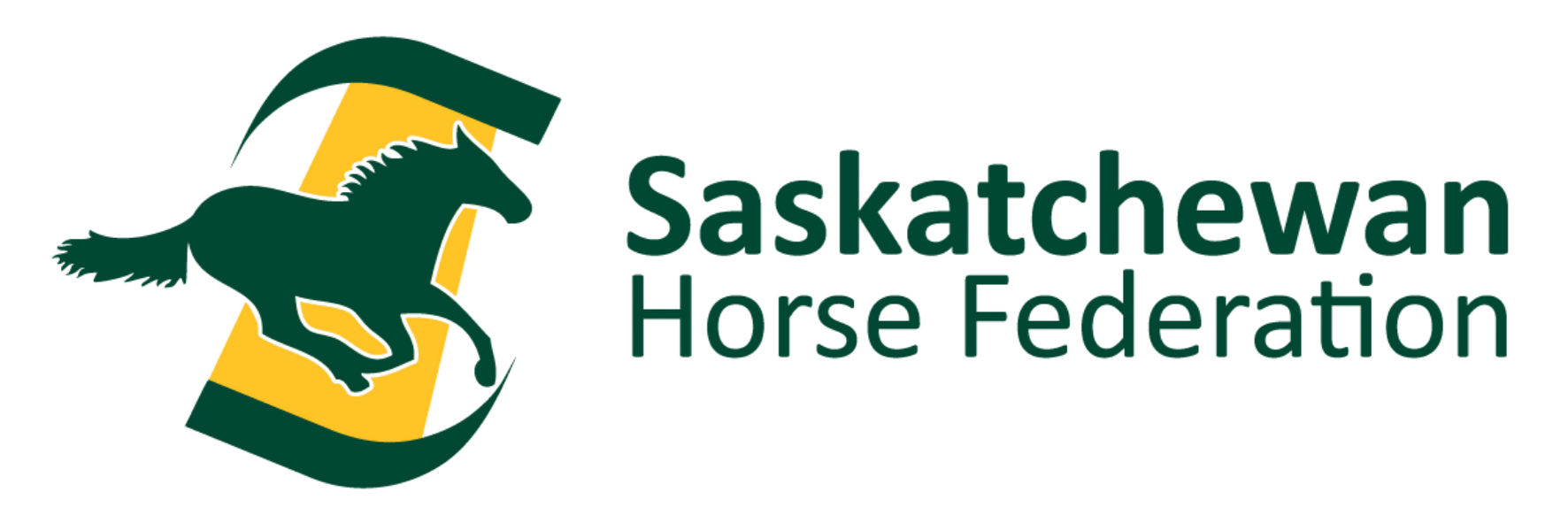

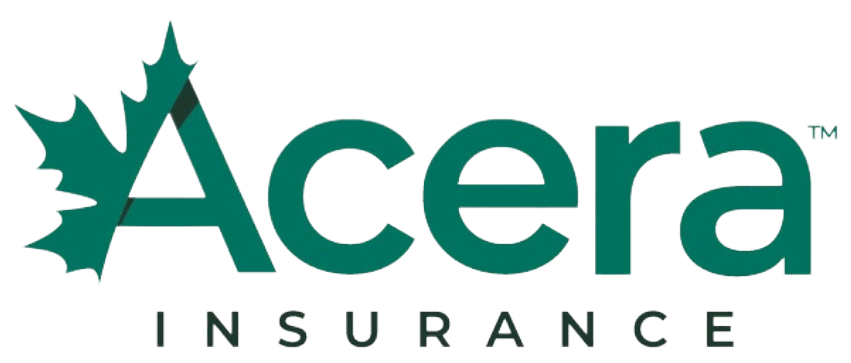
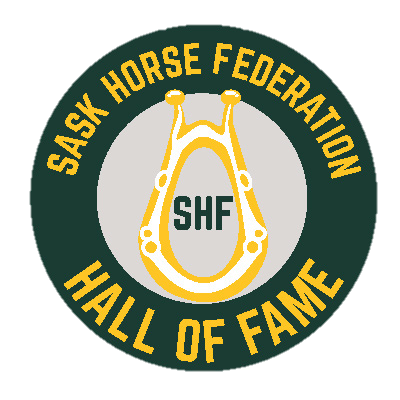
.png)


